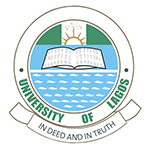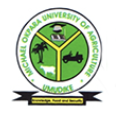Introduction
Michael Okpara University of Agriculture is a higher education institution in Nigeria that focuses on education, research and extension services in agriculture and related fields. The school is committed to cultivating professionals in the agricultural field and promoting agricultural technology innovation and rural development.
Overview
Student size: It has a large number of students, including undergraduates, masters and doctoral students. With the increasing demand for agricultural professionals, the number of students in the school is on the rise, providing many graduates for the agricultural industry in Nigeria.
Subject areas: Mainly concentrated in the field of agricultural science, such as crop science, animal husbandry, agricultural engineering, agricultural economy and rural development, food science and technology, etc. It also involves natural sciences (such as soil science, plant pathology) and social sciences (such as agricultural extension, rural sociology) closely related to agriculture.
History and establishment time
The school was founded in 1992 and was named in memory of Michael Okpara, a famous Nigerian politician. Its development process is closely linked to the process of agricultural modernization in Nigeria, and has played an important role in improving the level of agricultural education and scientific research in Nigeria.
School Strength
Teaching Staff: It has a professional team of teachers who have rich teaching and practical experience in the field of agriculture. They come from different agricultural disciplines, including agricultural experts, engineers, economists, etc., and can provide students with comprehensive agricultural knowledge and practical skills training. Some teachers also actively participate in agricultural scientific research projects and academic exchange activities at home and abroad.
Scientific Research Achievements: It has carried out extensive scientific research activities in crop variety improvement, animal husbandry technology, agricultural mechanization, agricultural product processing, etc., and has achieved many results. For example, in the field of crop science, high-yield crop varieties adapted to the local environment have been developed; in agricultural engineering, agricultural machinery has been improved to improve agricultural production efficiency. These scientific research results have an important role in promoting the sustainable development of Nigerian agriculture and the prosperity of the rural economy.
International Cooperation: It has established cooperative relations with many well-known agricultural colleges and agricultural research institutions in the world. Through student exchange programs, teacher visits, joint scientific research and other means, it strengthens international agricultural knowledge exchanges and technical cooperation. This not only broadens students' international horizons, but also introduces advanced agricultural technology and educational concepts to the school.
Institutional Nature
This is a public university funded and managed by the Nigerian government. As a public agricultural university, it undertakes important responsibilities in agricultural education, scientific research and social services in Nigeria, and is an important part of the national agricultural development strategy.
Educational philosophy
The core goal is to cultivate agricultural professionals with innovative spirit and practical ability. Focusing on the combination of theory and practice, it emphasizes that students should apply knowledge to actual agricultural production and rural development through experimental internships, farm practice, rural research and other activities on the basis of learning agricultural theoretical knowledge. At the same time, cultivate students' sense of social responsibility and encourage them to contribute to improving the current agricultural situation in Nigeria and the lives of rural farmers.
Key laboratories and disciplines
Key disciplines: Crop science and animal husbandry are the school's advantageous disciplines. Crop science has profound academic accumulation and scientific research strength in crop genetic breeding, cultivation technology, plant protection and other aspects; animal husbandry has outstanding performance in animal reproduction, feeding management, disease prevention and control and other fields.
Key laboratories: There is a crop science laboratory equipped with advanced plant physiological and ecological monitoring equipment, gene analysis instruments, etc., which are used for crop growth and development research and variety selection; the animal husbandry laboratory has animal nutrition analysis instruments, disease diagnosis and detection equipment, etc., which provide experimental conditions for animal husbandry and disease prevention and control. In addition, there are agricultural engineering laboratories and food science laboratories to provide support for teaching and scientific research in related disciplines.
Faculties and Colleges
The school has the College of Agriculture (including the Department of Crop Science, the Department of Animal Husbandry, etc.), the College of Agricultural Engineering, the College of Agricultural Economics and Rural Development, the College of Food Science and Technology, the College of Natural Sciences (providing basic discipline support for agriculture, such as the Department of Soil Science, the Department of Plant Pathology, etc.). Each college is further divided into multiple professional directions to provide students with systematic subject education.
Ranking
In the ranking of domestic universities in Nigeria, it ranks relatively high in the field of agriculture-related majors. It also has a high reputation and competitiveness among agricultural colleges in Africa, and has established a good image for agricultural education and scientific research in Nigeria and Africa.
Cost
Tuition: For Nigerian students, tuition is relatively low, and the government will provide certain funding policies. For international students, tuition varies according to different majors and degree levels. Generally, the tuition for agricultural majors is relatively reasonable, which has certain advantages compared with other majors.
Living expenses: The cost of living in the area where the school is located is relatively moderate due to the characteristics of the agricultural industry and the local economic level. The living expenses of students mainly include accommodation, food, transportation, etc. The cost of school dormitories varies according to different accommodation conditions. The cost of food and transportation is more reasonable under the local economic level.
Campus environment
Architectural style: The architectural style of the campus is both practical and agricultural. The design of teaching buildings, laboratories and other buildings focuses on meeting the needs of agricultural teaching and scientific research, and also incorporates local cultural elements. For example, some buildings may adopt a style similar to agricultural buildings, reflecting the characteristics of agricultural universities.
Campus facilities: It has complete teaching facilities, including modern classrooms, advanced laboratories (such as the various agricultural laboratories mentioned above), professional libraries (the collection of books is mainly agricultural-related books and academic journals, covering crops, animal husbandry, agricultural engineering and other fields), computer centers, etc. Living facilities include student dormitories (providing different levels of accommodation conditions), canteens (providing food made from local specialty agricultural products), sports venues (such as basketball courts, football fields, etc., for students' extracurricular sports activities), etc., to meet students' learning and living needs.
Natural landscape: There are large tracts of farmland, orchards, gardens and livestock farms on campus, which are not only practical bases for teaching and scientific research, but also constitute the unique natural landscape of the campus. Students can study and live in an idyllic environment and feel the strong agricultural atmosphere.
-

University of Lagos
-

Benson Idahosa University
-

Bauchi State University
-

Federal University of Technology, Akure
-

Tai Solarin University of Education
-

University of Benin
-

Bayero University Kano
-

Ahmadu Bello University
-

Madonna University
-

Redeemer's University
-

Mesoamerican University
-

Istmo University
-

Mariano Galvez University of Guatemala
-

Regional University of Guatemala
-

Galileo University
-

Francisco Marroquín University
-

Rafael Landívar University
-

University of the Valley of Guatemala
-

University of San Carlos of Guatemala
-

Technological Institute of Tlaxcala Plateau
-

Golfo University
-

Technological University of South Sonora
-

Technological University of Huejotzingo
-

Tizimín Institute of Technology
-

Chilpancingo Institute of Technology

